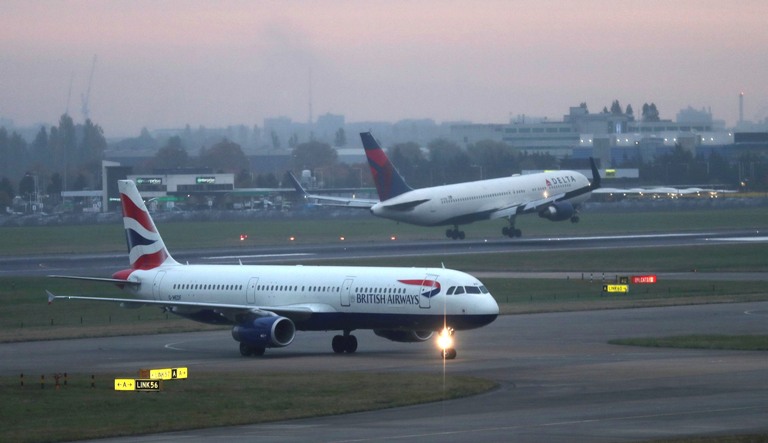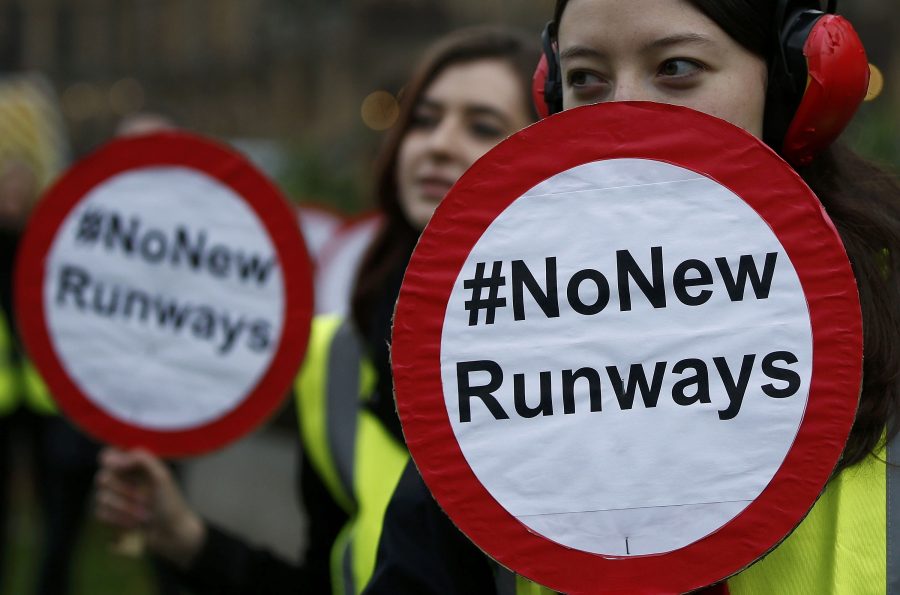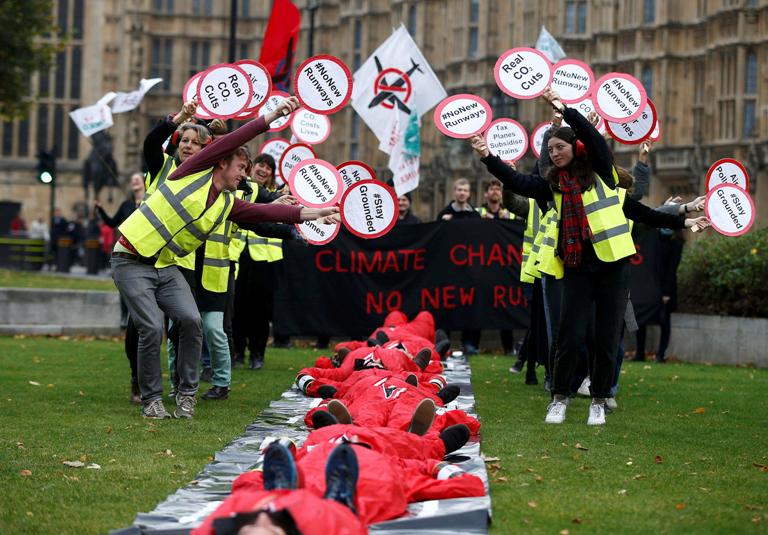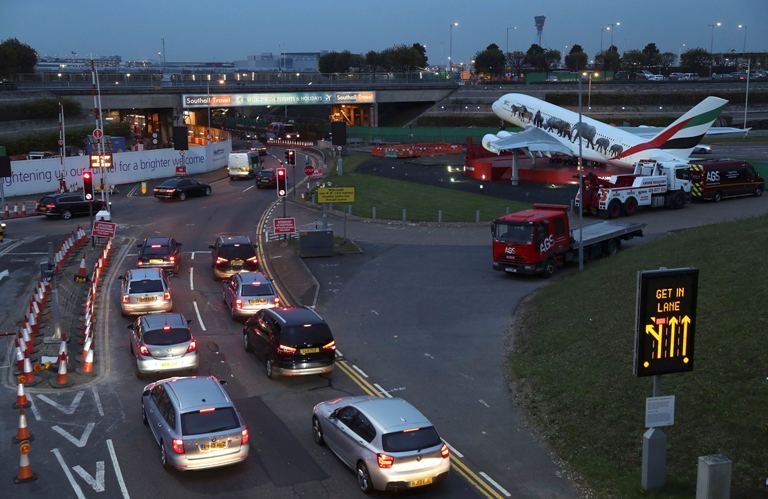
Britain gives Green Light for New $22 Billion Runway at Heathrow
LONDON (Reuters) – Britain on Tuesday gave Heathrow Airport the green light to build a new $22 billion (18 billion pounds) runway, ending 25 years of indecision with the most ambitious option available to boost global trade links following the vote to leave the EU. Heathrow, Europe’s busiest airport, had been battling with its smaller […]

LONDON (Reuters) – Britain on Tuesday gave Heathrow Airport the green light to build a new $22 billion (18 billion pounds) runway, ending 25 years of indecision with the most ambitious option available to boost global trade links following the vote to leave the EU.

Heathrow, Europe’s busiest airport, had been battling with its smaller rival Gatwick for the right to expand, after successive governments failed to make a decision on a new runway due to environmental and political protests.
“This is a really big decision for this country but it’s also the clearest sign post the referendum that this country is very clearly open for business,” Transport Minister Chris Grayling told reporters on Tuesday.

The project, one of the biggest infrastructure programmes in Europe at 18 billion pounds, is now likely to face legal challenges and a final vote by lawmakers in a year’s time, meaning the runway can only open by 2025 at the earliest.
The decision by Prime Minister Theresa May marks one of her biggest moves since she took office in July and puts her in conflict with some senior ministers who oppose expansion over densely populated west London, including Foreign Secretary Boris Johnson whose electoral constituency sits near Heathrow.
The government proposed legally binding noise targets to provide respite for local residents, many of whom oppose expansion due to worries over noise and air pollution.

Heathrow is set to lose its ranking as Europe’s biggest hub airport to Paris’ Charles de Gaulle by 2020. With only two runways it is limited to 480,000 flights a year compared with the potential for more than 600,000 flights offered by rival European airports with more runways.
According to a three-year study by Britain’s independent Airports Commission, a new runway at Heathrow would create 70,000 new jobs by 2050 and increase gross domestic product by between 0.65 and 0.75 percent by 2050, representing a 147 billion-pound boost to the economy over 60 years.
Heathrow’s established links with emerging markets also strengthened its case in the wake of Britain’s vote to leave the EU in June.

Heathrow is owned by Spanish infrastructure company Ferrovial, Qatar Holding, China Investment Corp and other investors, with expansion costs paid for by the private sector, not the public purse.
(Reporting by Kylie MacLellan and William James, Writing by Sarah Young; editing by Kate Holton)
